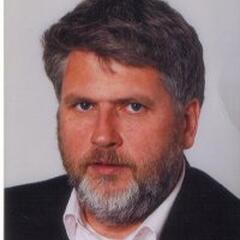Important Dutch words to help you in today's troubling times
Ruud Hisgen of Direct Dutch Institute discusses several happy “vr”- words and, in doing so, he hopes to give you some insight into the Dutch love of freedom and peace.
In these turbulent times of conflict and war, let’s discuss some uplifting words and phrases in the Dutch language that remind us of happier situations. John Lennon and Yoko Ono sang in 1969, “Give peace a chance”. So, what would they have said if they had been Dutch? “Geef vrede een kans!”
So, you’ve been living in the Netherlands for a while and are settling in well into this country. You may have also been trying to pick up the Dutch language and are discovering new words every day.
Here are a few Dutch words that are useful to know while you are living in the lowlands.
Vreemd (Strange)
It is sad but, problems and conflicts can start when other persons or groups and their behaviours are considered vreemd (unusual, weird) because some of us are suspicious of vreemden (strangers) or vreemdelingen (aliens or foreigners).
However, since the 17th century - also known as the Gouden Eeuw (Golden Age) - Dutch history has taught us how beneficial it can be for both parties to be hospitable and welcome strangers or foreigners to our towns and homes.
Also, history has shown that newcomers have always added much value to Dutch society in terms of: creativity, knowledge, scientific / philosophical development and economic progress. Other cultures have enriched the Dutch language, resulting in a large vocabulary. Thus, it pays off to appreciate anything that is “vreemd” and to be gastvrij (hospitable) to vreemden and vreemdelingen.
Vriend (Friend)
Eventually, those vreemden and vreemdelingen will turn into neighbours and maybe even into valued vrienden (friends). The word vriend is a very old Dutch word dating back to the Middle Ages and it has surprising etymological origins, a fact that most Dutch people do not know.
The word vriend goes back to the old Germanic verb frijōn which means “to love” (liefhebben) or “to make love” (vrijen). So vriend is a form of a verb with vrij (free) in it. Vriend is therefore very close to someone you “love”.
Vriendschap means “friendship" and the verb frijōn’ is also at the basis of the word vrouw (woman).
Vrij (Free)
Whether it’s vriend or vrouw, the Dutch have always loved words with the letters vrij (free) in it. One of the oldest Dutch phrases “Maltho thi afrio” was discovered in an eighth century lawbook. Its translation in modern Dutch is, “Ik zeg je: ik laat je vrij” which means, “I say to you: I set you free”. This was a legal formula by means of which an enslaved person was turned into a free citizen.
The adjective vrij is the basis for nouns such as:
- De vrijheid (freedom)
- De bevrijding (liberation)
- De gastvrijheid (hospitality)
- De vrijdenker (free thinkers)
These are concepts valued by every human wherever in the world, for what is life without vrijheid? Hell! The Dutch use the verb vrijen when they want to be intimate with loved ones - consensually of course! So remember vrijen, because this verb expresses to woo, to make love or to cuddle and a vrijer is a lover.
Vrede (Peace)
What is vrede (peace) without vrijheid (freedom)? It's impossible because these two concepts go hand in hand: there is no peace without freedom and vice versa. To achieve peace in a free society, we need an institution with some very wise people. But where can we find them?
Well, in The Hague for instance, the slogan of their city is "De stad van vrede en recht (The City of Peace and Justice)". Since 1913, Het Vredespaleis (Peace Palace) can be admired in the city centre. This beautiful palace houses Het Permanent Hof van Arbitrage (Permanent Court of Arbitration) which is an international court of justice and the gigantic International Law Library.
Since 2002, The Hague has also provided accommodation to Het Internationaal Strafhof (International Criminal Court) which investigates and tries individuals charged with war crimes and crimes against humanity. With these famous judicial institutions, The Hague hopes to contribute to a world in which vrede en recht will reign supreme, so conflicts, wars and injustice can be avoided. The city has a long tradition because it honours several world famous vrijdenkers (free thinkers) from the 17th century, such as the lawyer Hugo Grotius and the philosopher Benedictus Spinoza.
Vreugde (Joy)
When the time has finally come when gastvrijheid (hospitality) is the standard, when vreemden (strangers) will be our vrienden (friends); when vrijheid (freedom) and vrede (peace) rule the entire world, there will be vreugde (joy) among all people.
People will be vrolijk (cheerful) and celebrate a world which will be closer to paradise than hell. They will be singing to the music of Ludwig van Beethoven’s and Friedrich Schiller’s Ode aan de vreugde (Ode to Joy) in the Ninth Symphony with the words, Alle mensen worden vrienden, which means “All people will be friends”.
So practise these Dutch words beginning with the letters “vr-” and use them as often as you can and, who knows, vrede (peace), vreugde (joy), vrijheid (freedom), vriendschap (friendship) and gastvrijheid (hospitality) may help to drown out the grave and negative words that have caused so much sadness in today’s world.
Ready to get a better grasp of the Dutch language? Direct Dutch Institute offers intensive courses at their location in The Hague and online. Contact their team by email at info@directdutch.com or by phone at +31 (0)70 365 4677.



COMMENTS
Leave a comment